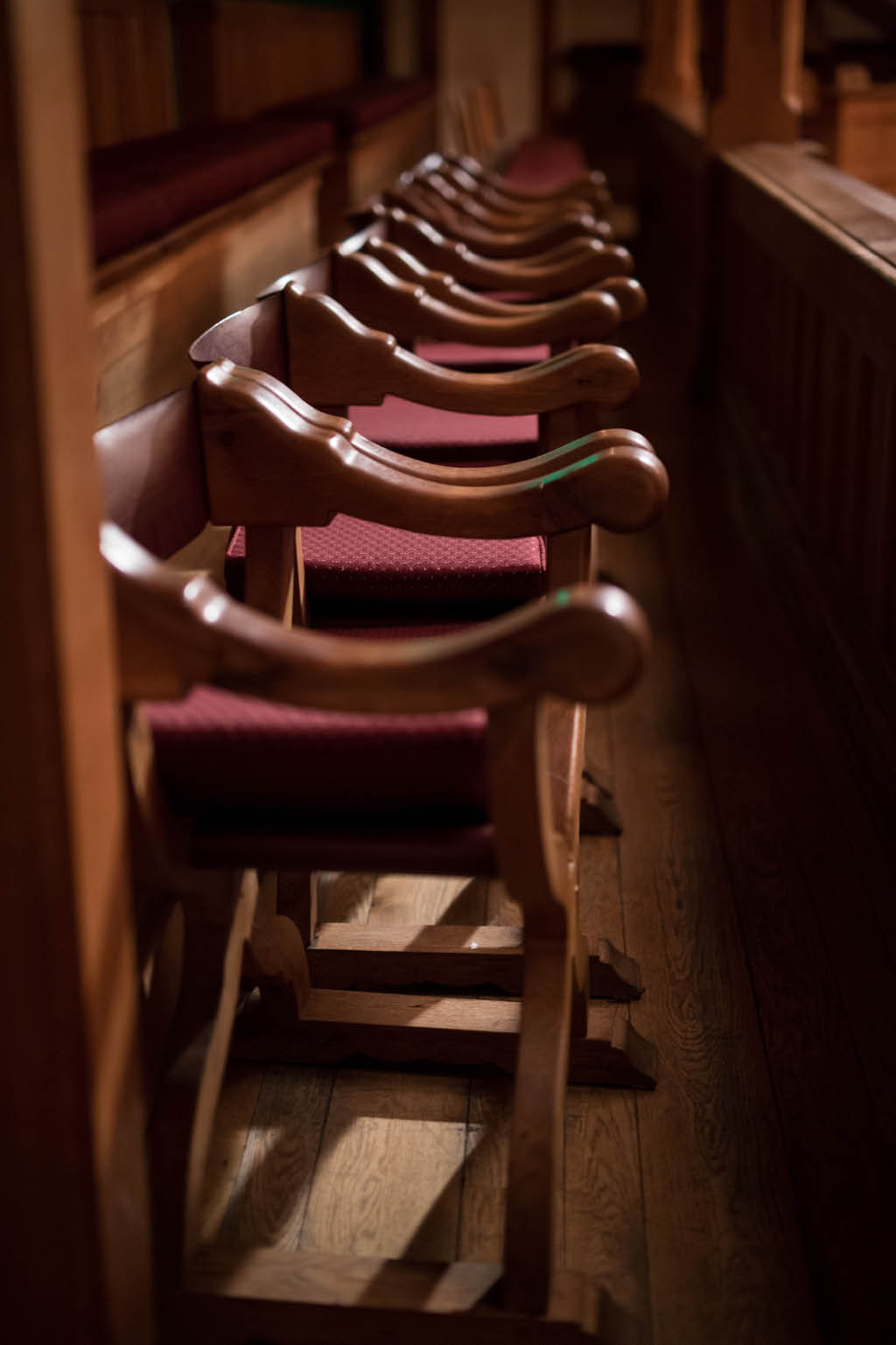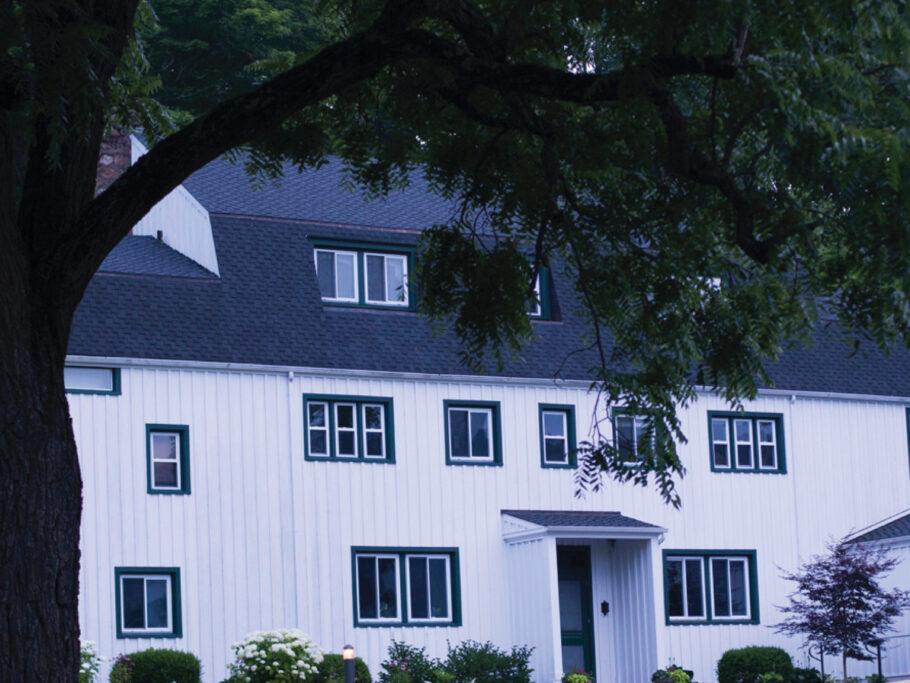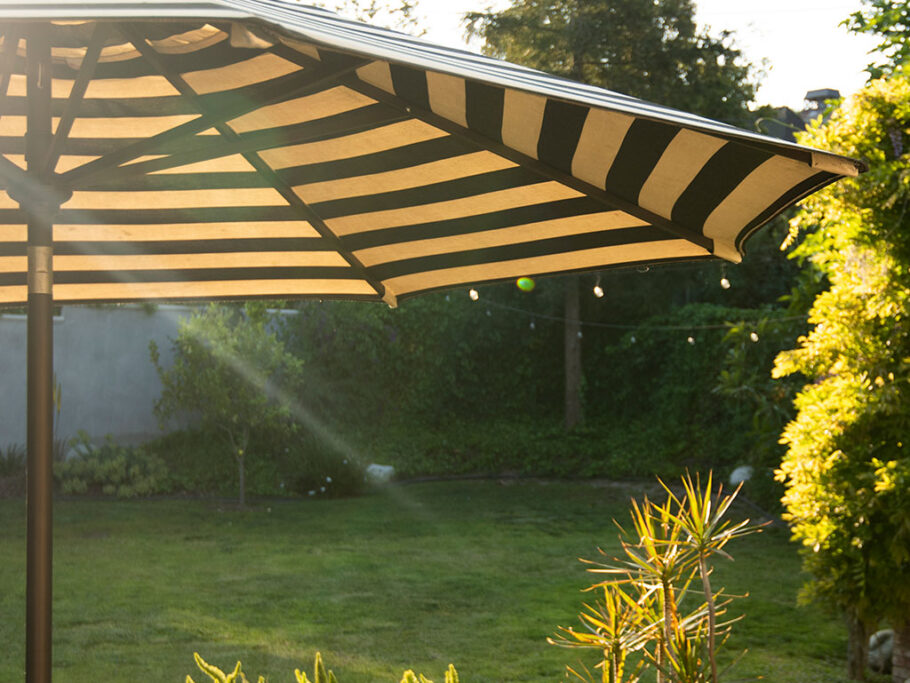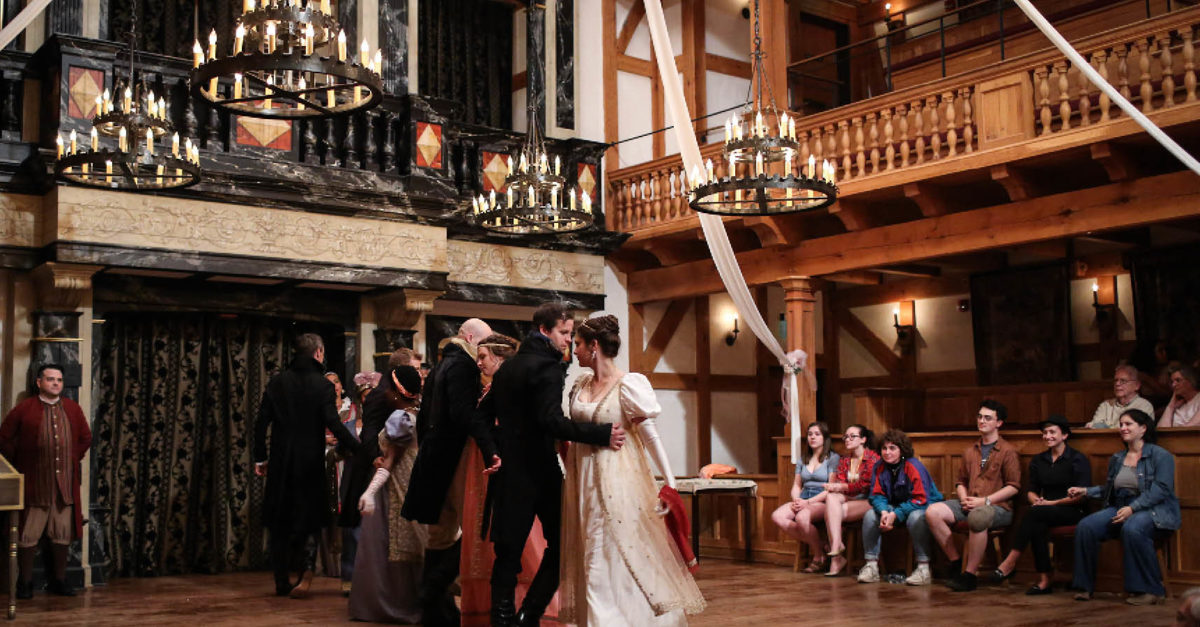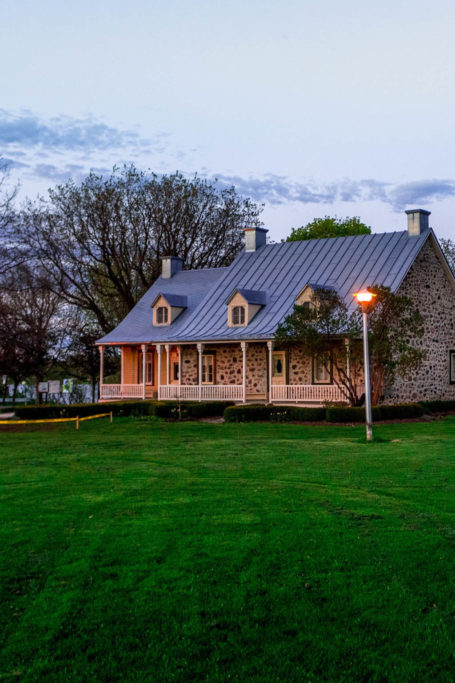Bard Times
In recent years, authenticity—often sacrificed in this time of mass-production and oversaturation—has been making a comeback. What’s old is new. Antiquing is popular. Collectibles are back. Vintage is in.
One place that has been championing authenticity for decades is the American Shakespeare Center, home to the Blackfriars Playhouse—the world’s only re-creation of the playwright’s famous indoor theater. The Blackfriars is the jewel of Staunton (pronounced Stanton), Virginia, a mountain town of about 25,000 in the Shenandoah Valley.
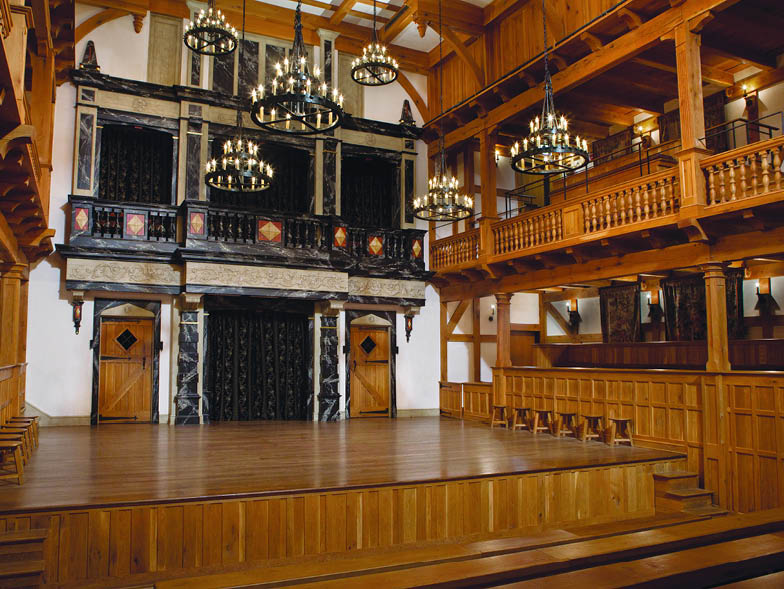
“They say the Blackfriars is one of a kind, and it really is,” says Ethan McSweeny, the ASC’s artistic director. “It was constructed entirely in wood, in painstaking detail, by local craftsmen, and it’s an intimate space that still allows audiences to dream on an epic scale.” The theater seats approximately 300 people, and every seat is in close proximity to the stage. In part, that’s because there is no amplification or effects in the Blackfriars Playhouse—everything is spoken and played live. “If we have a sound cue, we make it ourselves. If we have a scenery move, we push it or drag it or roll it or carry it by hand,” McSweeny adds.
In all, the American Shakespeare Center produces over fifteen plays per year and holds hundreds of performances, both at the playhouse and on tour around the country, fifty weeks a year. “This place is like a perpetual-motion theater machine,” shares McSweeny, who joined in 2018. “It’s a hive of activity.”
It all began over thirty years ago, born out of frustration. Ralph Cohen, a James Madison University English professor, was exasperated by the overelaborate productions of Shakespeare plays that favored sets and lighting at the expense of the language and story. So he encouraged his students to research the Bard’s original staging conditions, and, using those practices, he directed them in a production of Henry V. Inspired by that experience, Cohen and cofounder Jim Warren started a touring company called the Shenandoah Shakespeare Express (which changed its name to American Shakespeare Center in 2005).
The troupe toured widely—much as Shakespeare’s had back in the day. After the town of Staunton offered to build it a theatrical home, the Shenandoah Shakespeare Express moved to Staunton and, influenced by London’s re-creation of Shakespeare’s outdoor Globe Theater, the company worked with the city to re-create his indoor theater, the Blackfriars Playhouse.
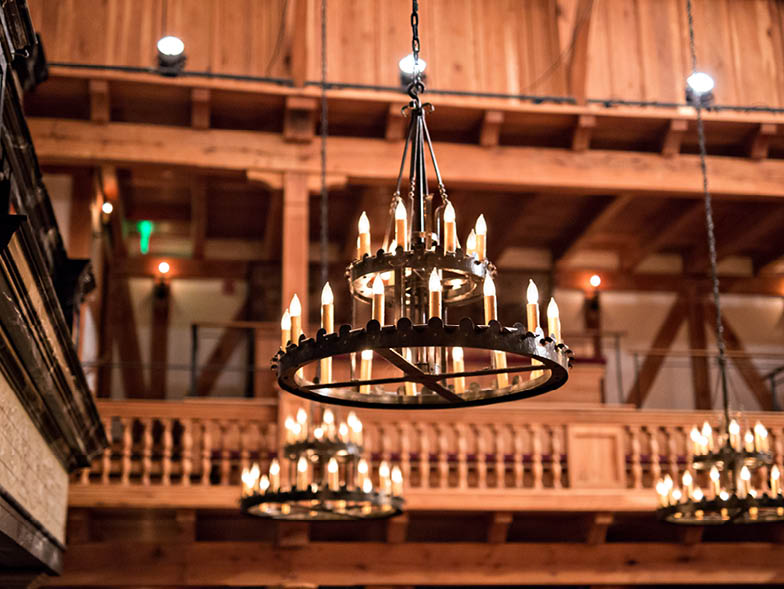
By 2001, the new Blackfriars Playhouse opened its doors. “It’s a really great story of a civic partnership,” says McSweeny, who also notes that the theater has brought in millions of dollars per year to the community, which he says has “really contributed to making Staunton an exceptional small town with a ton to offer.” About Staunton, he adds: “I’d like to think that, when we talk about being Shakespeare’s American Home, we mean both Blackfriars and Staunton itself would feel innately familiar to him and he’d feel entirely at home here. There’s a lot about Staunton and its surroundings that is reminiscent of the English countryside.”
Close Connections
When you see an American Shakespeare Center performance, expect a theatrical experience you’ve never had before. For example, at the Blackfriars Playhouse, the electric candles stay on—both over the stage and over the audience. Music plays a major role as well, with the actors connecting with the audience by playing songs before, during, and after a show—mostly acoustic versions of contemporary songs that are relevant to the play. You can even sit on the theater’s gallant stools, which are literally on the stage. “Using Shakespeare’s staging conditions allows the actors to communicate directly with the audience,” McSweeny explains. “Shakespeare wrote a lot of asides and soliloquies, and it’s amazing what happens when the actor can relate to you. It engages you profoundly in the character and in the play in a way that you have to experience to understand fully.”
As a repertory company, the ASC offers four or five plays at a time at the playhouse, so, for example, you can see a different play each day over a long weekend. And if you’d like to go beyond the Bard, the ASC also produces other classics from the Elizabethan and Jacobean periods.
In addition, it offers brand-new selections taken from its Shakespeare’s New Contemporaries initiative, a competition that solicits scripts inspired by the plays of Shakespeare. The winning writers get a $25,000 prize, as well as a production of their original work. The first fruits of this program, garnered from upward of 200 submissions, are being presented in 2019: a play inspired by A Winter’s Tale and another inspired by The Merry Wives of Windsor.
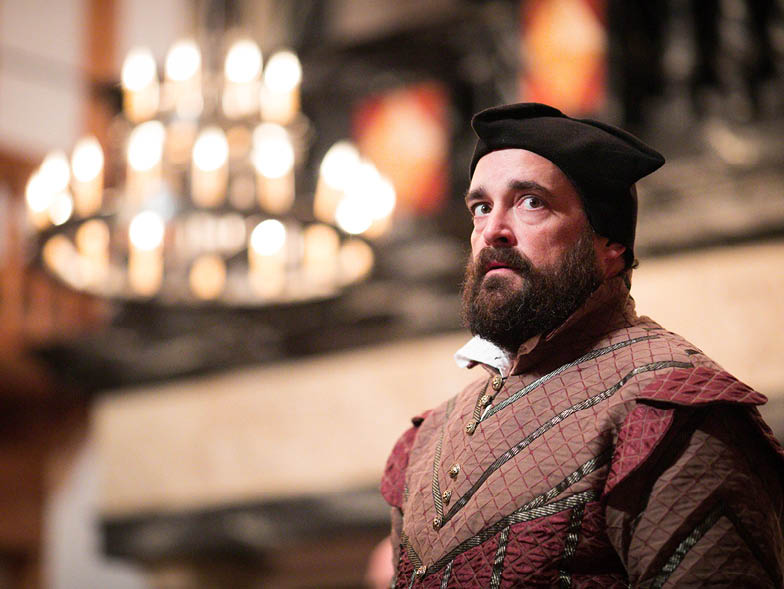
Road Warriors
If you’d prefer to see the American Shakespeare Center closer to home, the company continues its longstanding tradition of touring, often performing at universities and performing arts centers from Maine to Texas. In addition, McSweeny says that the ASC is getting booked at more and more law schools, which use Shakespeare and rhetoric as tools for the legal profession.
Regardless of where it lands, the touring company uses the same Shakespeare staging conditions as the playhouse—which McSweeny says is particularly challenging for those performing. “Touring is harder on the actors because they must adapt to different environments,” he shares. “We tour with three plays in repertoire, so they may stay two or three days to do one of each or just be in town for one night and then go back on the road. They really are warriors when they go out there and carry the show on their back. It’s pretty amazing work.”
William’s Wit, or Leave Them Laughing
Perhaps unexpectedly, considering many people’s academic experiences with Shakespeare, a common reaction from audiences is how much they laugh during an ASC performance. “Shakespeare wrote to be performed,” McSweeny states. “Ultimately, it’s about being honest and authentic to the material, even if it’s deep and tragic. When you are, whatever is already funny in it comes out. And laughter is our way of sharing as a species—it’s the universal way of telling each other things are OK. I think it’s an incredibly important component of the work and experience here.”
One example, he says, stands out. “The Merry Wives of Windsor is kind of the original sitcom,” he shares. “The first time I worked on it, I realized how effortlessly contemporary so much of it is. But, then again, in the last 400 years, you’d have to believe that people have fundamentally changed, and we haven’t. Our need to laugh, our emotions, our need for love and affection, our fear—all these things that make us human—are the same. In a way, what we do at the Blackfriars and on tour is get our contemporary selves enough out of the way to be able to see that these characters are exactly like us.”
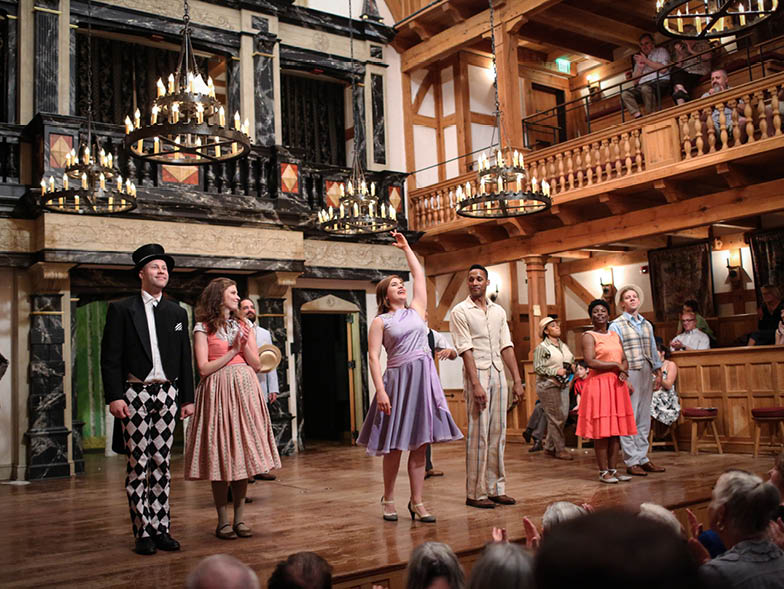
The Mission
Learning about the human spirit—and about oneself—is a common theme in Shakespeare’s work, and it’s clearly at the heart of the American Shakespeare Center’s mission. This extends to teaching others as well. ASC educates students from grade school through college and graduate school, and it runs summer camps for high-schoolers from all over the country. Plus, it offers workshops and has a successful leadership development program, which serves professionals by using Shakespeare characters, case studies, and rhetoric to build communication skills. It also educates teachers, not only about Shakespeare but also about the staging conditions that they can easily replicate in their own classrooms—making Shakespeare as exciting to their students as possible.
McSweeny says that the tools of creativity, problem-solving, and collaboration are at the heart of it all, and, as such, the American Shakespeare Center is a place where classical theater can be instructive and fun and can even change lives. By staying true to Shakespeare’s works, staging conditions, and timeless messages, this unique venue offers not only an unforgettable few hours of entertainment but also insights that can only come from the Bard—proving that age-old wisdom never really goes out of style.
For more info, visit americanshakespearecenter.com
